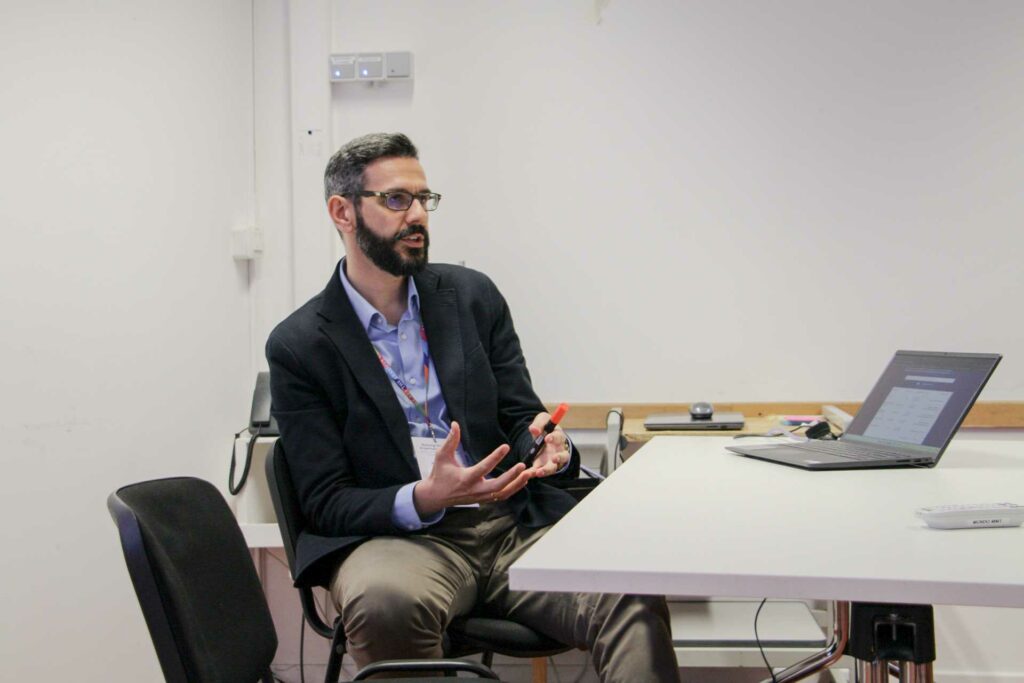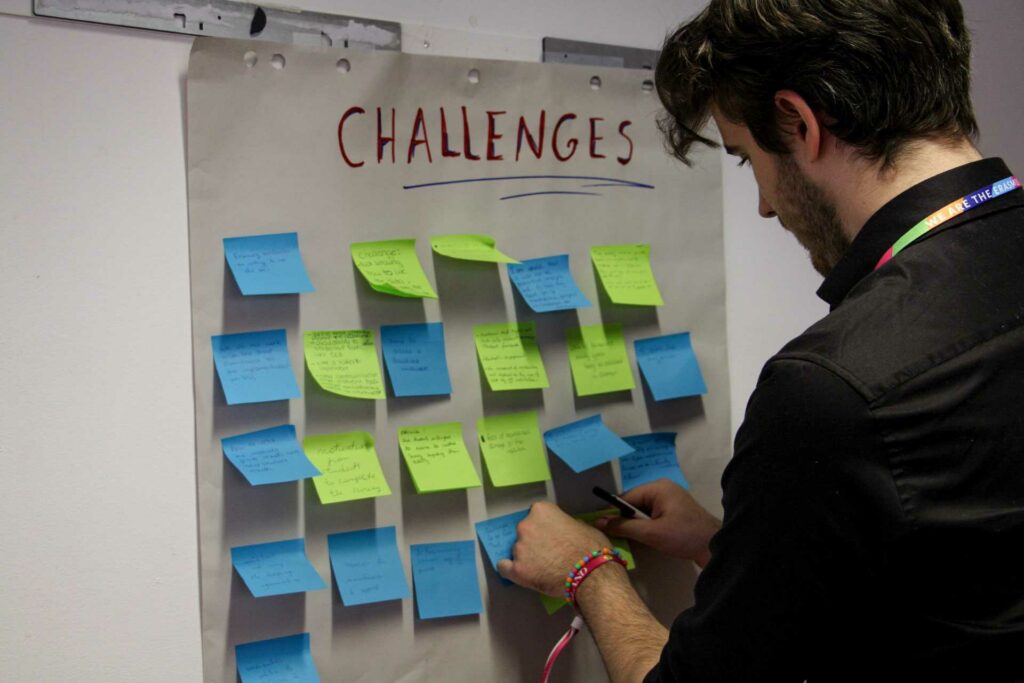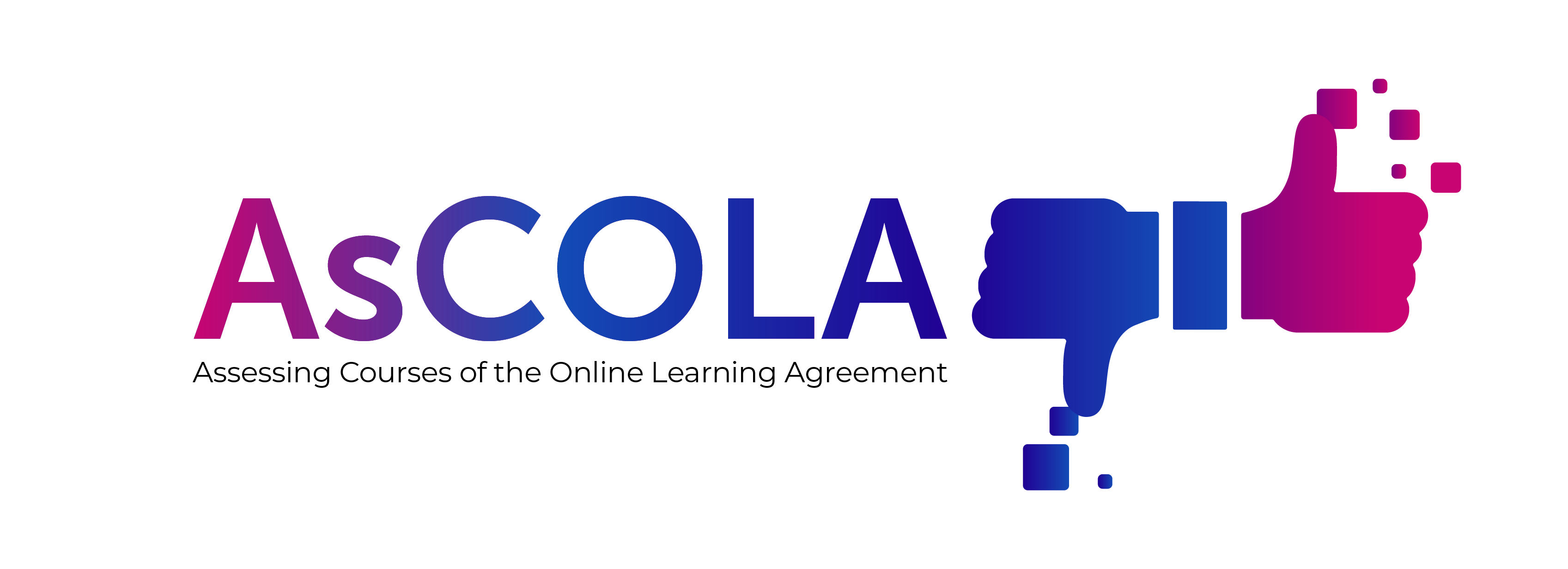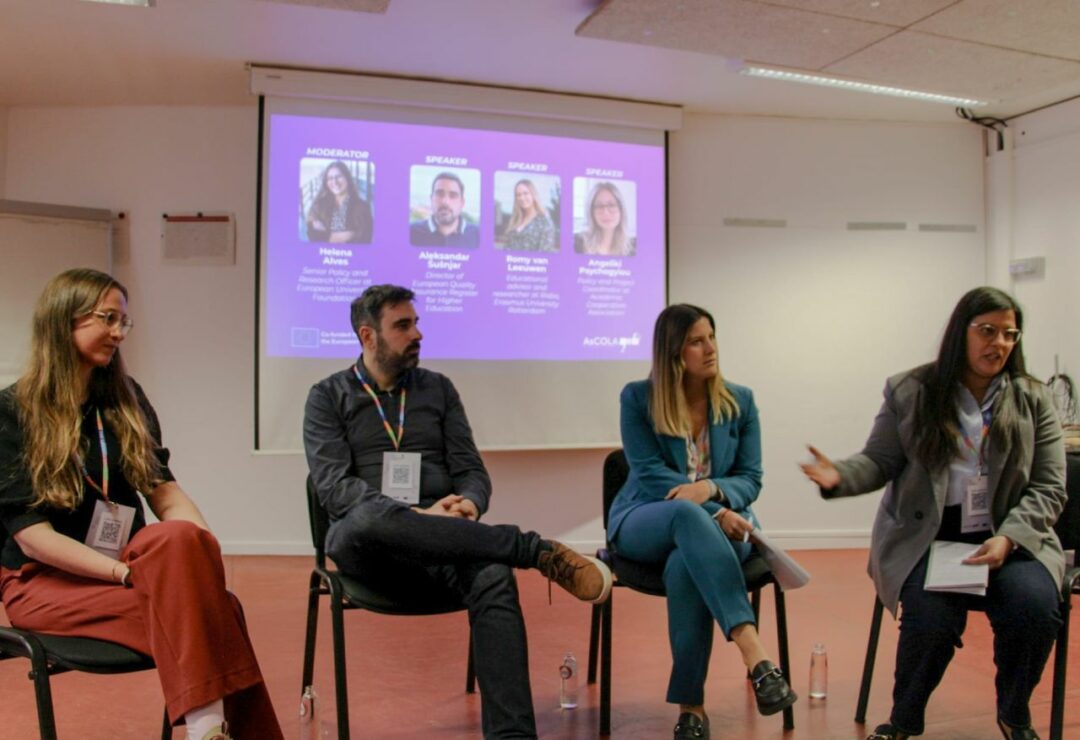The AsCOLA Final Conference took place on 6 May in Brussels, under the title “Raising the Bar in Erasmus+ Mobilities: AsCOLA Student-Centred Courses Evaluation”. The event marked a major milestone in improving the quality of Erasmus+ mobilities by amplifying student voices and advancing institutional commitment to building more student-centred learning environments.
A central feature of the conference was the presentation of the AsCOLA course evaluation tool – a digital platform designed to help students assess and review the courses they complete during their mobility. By addressing gaps in course transparency and feedback mechanisms, the tool aims to enable future students to make better-informed decisions and encourage higher education institutions to enhance academic quality through more structured student input.
The AsCOLA tool in action
The AsCOLA tool was showcased during an interactive live demonstration led by Efthymis Maznis, software engineer at the Aristotle University of Thessaloniki, and Nikos Liolios, project manager of AsCOLA. Participants explored key features designed for both students and university staff, and engaged in hands-on testing. The session concluded with a dynamic discussion, where feedback on usability and implementation sparked a broader conversation on student engagement in feedback processes and the importance of institutional follow-up.

Nikos Liolios, project manager of AsCOLA, during the live demonstration
World Café on empowering student feedback
In the afternoon, participants joined small group discussions in a world café format, led by AsCOLA project partners including ESN, Risbo, and Aristotle University of Thessaloniki. Topics focused on empowering student voices, fostering meaningful feedback practices, and increasing transparency in the use of student evaluations. Participants agreed that students are more likely to engage when they understand how their feedback will be used and when encouraged by peers. There was also strong consensus that course evaluations should be ongoing, visible, and clearly connected to institutional improvements.

A participant during the World Café session at the AsCOLA final event
Rethinking evaluation practices
The event concluded with a panel discussion on quality assurance in the internationalisation of higher education, moderated by Helena Alves (Senior Policy and Research officer at the European University Foundation), with contributions from Romy van Leeuwen (Educational advisor and researcher at Risbo, Erasmus University Rotterdam), Aleksandar Šušnjar (Director of EQAR), and Sara Tagliabracci (Global Mobility Coordinator at ESN). The panel addressed the need to better integrate mobility into the broader student experience, calling for more inclusive evaluation practices. Credit recognition emerged as a persistent challenge, attributed to a lack of inter-institutional trust, and the panellists advocated for more transparent and automatic recognition procedures. They also highlighted that while academic growth remains a primary motivation for mobility, many students report a lack of information when selecting courses.
The discussion reinforced that effective evaluation requires input from a range of stakeholders – including students, staff, and civil society – and must lead to tangible change. The AsCOLA tool was recognised as a strong step forward, with speakers emphasising that its long-term value will depend on its practical integration into everyday institutional processes to support more responsive, transparent, and student-driven mobility experiences.
The feedback collected from participants was subsequently reviewed during a meeting of the project partners. The consortium discussed the identified challenges and proposed improvements to the AsCOLA tool, carefully considering their feasibility and potential impact on usability. Although the project is approaching its conclusion, all partners remain committed to actively disseminating the tool to ensure its sustainability and lasting impact.

